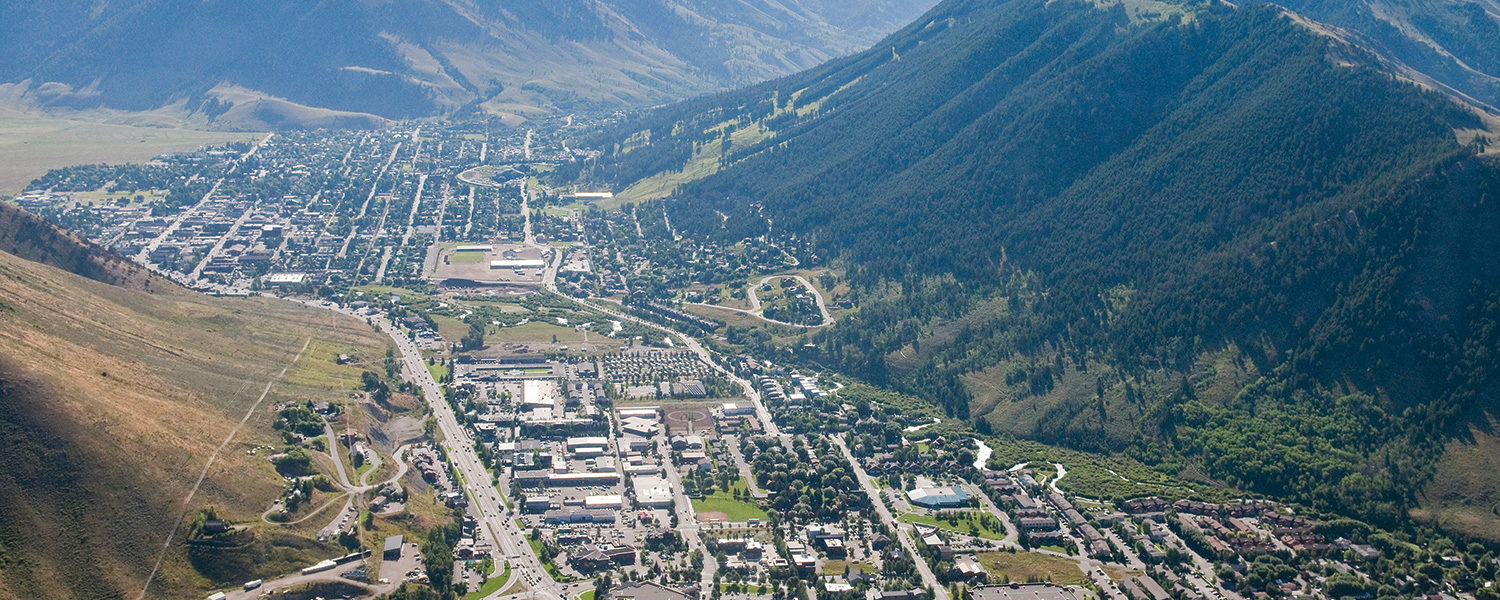Teton County still nation’s wealthiest with $471,751 average annual income

• Resident analyst dissects effects of state’s tax structure, federal tax cuts, COVID, investment income and remote work on wealth in Jackson Hole.
By Angus M. Thuermer Jr., WyoFile.com
Federal data shows the average per capita income for a Teton County resident was $471,751 last year, the highest in the nation.
With a per capita income approaching half a million dollars annually, Teton County’s figure is 6.7 times the nation’s average, which was $69,810 according to calculations from federal Bureau of Economic Analysis data.
Teton County’s 2023 per capita income was more than seven times the $65,917 average of Wyoming’s other 22 counties, Jackson Hole economic consultant and Jackson Town Council member Jonathan Schechter wrote in a newsletter last week.
“On average, every person living in Teton County in 2023 — regardless of age, health, employment status, what have you — earned an average of $471,751,” Schechter wrote in his “Co-Thrive” newsletter. The annual figures are the latest available and were released last month by the U.S. Department of Commerce.
Schechter titled his latest missive “It Ain’t Me Babe” to underscore that super-wealthy individuals raise Teton’s average annual income and that Jane and John Doe aren’t sipping Dom Pérignon from Neiman Marcus flutes at happy hour.
While there are no median (half above, half below) county figures for 2023 based on the same IRS data, there is other information that indicates “it’s not just one or two people,” who boost the per capita income for the collective 23,000 residents, Schechter said.
Continued demographic shifts may be in store, potentially contributing to the community’s traffic congestion, income inequality and affordable housing shortages, Schechter wrote.
“If the incoming administration honors its pledge to further cut taxes for the rich, then Jackson Hole and similar communities need to brace themselves for round two of recent years’ craziness regarding investment income, home prices, and the difficulties of housing anyone but the well-to-do,” Schechter wrote.
Schechter traces Teton County’s wealth to heady investment income growth, tax structures and post-COVID demographic changes, among other things.
The 4 percent
State policies contribute to Teton County’s high per capita income, including “Wyoming’s extraordinarily wealth-friendly tax and trust laws,” the newsletter states. “Despite having just 4% of Wyoming’s population, in 2023 Teton County residents earned 23% of the state’s total personal income and essentially half of its total investment income,” Schechter wrote.
Wyoming’s own analysts acknowledge some of Teton County’s outlying statistics. Teton County generated more than 50% of the state’s mandatory 3% lodging tax in FY 2024, according to Wenlin Liu, chief economist with Wyoming’s Economic Analysis Division of the Department of Administration & Information. Jackson is a major tourist destination and is located near Grand Teton and Yellowstone national parks.
The assessed value of Teton County’s residential property makes up 35% of the state’s total, according to calculations made from the Wyoming department’s information. The state lists $3.5 billion worth of residential property in Teton County, $9.8 billion statewide.
The cost of living for Teton County in the second quarter of 2024, based on a statewide index of 100, was 176, the agency reported. Housing alone was 239, according to the index, meaning that Teton residents paid $239 for every $100 paid by residents statewide. A two-bedroom unfurnished apartment in Teton County costs an average of $3,354 a month to rent, not counting gas and electric bills.
The situation is challenging for Teton County because it doesn’t have the tools, like a real estate transfer tax, to capitalize on the wealth and address the impacts it brings, said Schechter who operates the Charture Institute think tank. Wyoming itself has sought to capitalize on Teton’s high property values, seeking to lease state school trust land to maximize revenues.
County developers, housing advocates and large landowners also have urged the state to rejigger local land use and zoning rules to assuage housing woes, appealing to the Legislature’s Regulatory Reduction Task Force for changes. Lawmakers have questioned whether the county uses such codes and regulations to exclude others or enact a no-growth policy.
For Schechter, the solution is not so simple. “To resolve the affordable housing crisis you have to repeal the law of supply and demand,” he said.
Location-neutral jobs
“People are increasingly choosing to move to where they want to live rather than where work forces them to live,” Schechter wrote. Changes in technology and other factors “sever the umbilical cord connecting work and home.”
As a result, five Rocky Mountain resort counties rank in the nation’s top 12 for per capita income in 2023, including second-place Summit County, Utah, location of Park City, and third-place Pitkin County, Colorado, site of Aspen. “Once quiet, off-the-beaten-path communities such as Jackson Hole, Park City, Aspen, Sun Valley, and Telluride are being overwhelmed by economic forces beyond their control, and arguably beyond their comprehension,” Schechter wrote.
He has a theory. “I suspect the reason for Teton County’s tremendous growth in investment income is the Trump tax cuts of 2017,” combined with COVID migration, he wrote. Starting in 2019, “the major socio-economic effect on Jackson Hole was that both home prices and investment income doubled in three years.”
The Teton County residents who benefited most had investments, worked in “location-neutral jobs” and/or earned income from employment based outside of Teton County. “What didn’t double were the wages for people working in Jackson Hole’s location-dependent jobs; i.e., most of the jobs that allow the community to function,” Schechter wrote.
It’s sometimes difficult to convey the county’s skewed economics to legislators who forge the state’s policies, Rep. Andrew Byron (R-Jackson) said. Wealth in Teton County creates “a constant target … on our back.”
Simply getting lawmakers to convene committee meetings in Jackson is difficult given the mismatch between electeds’ per diem payments and hotel costs, he said. When they do visit and see residents’ efforts to preserve scenery, wildlife habitat and also tax themselves to improve housing, stereotypes can dissolve.
“I think that can break down these barriers,” he said.
WyoFile is an independent nonprofit news organization focused on Wyoming people, places and policy.





